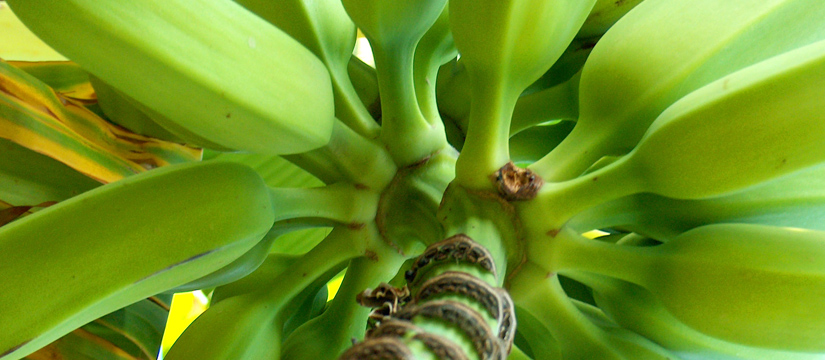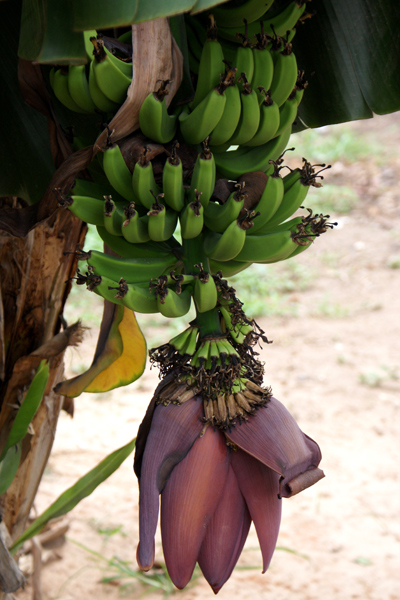One of the main things you learn in cross-cultural classes is that cultures are all different and we should refer to them as different, not wrong. Those of us who have responded to that calling of cross-cultural ministry always pride ourselves on recognizing this difference and pointing this out. We want to make sure that everyone knows that we know how to accept cultural differences as equal and respect the cultures of others.
Can I let you in on a secret? Although we may seem like experts at adjusting to culture, it is not always easy and it is truly a process.
After living in Haiti for more than ten years, we moved into the mountains and were working with the local farmers. One day, I was given a very special banana tree. One of my neighbors knew how much I loved bananas and asked me to come join him in my garden. He was so excited to show me the young banana pups. He had brought me of a variety of banana tree that he said was delicious and sweet.
As we prepared to plant it, he took off his shoes and asked me to do the same. I was very interested to know why I had to remove my shoes. He went on to explain that if we did not plant this variety of banana barefoot then it would grow but never give us fruit.
After being in Haiti for so long I found the story interesting and somewhat humorous, but I did not try to change his mind. I enjoyed the experience and planted the tree in my bare feet.
The first difficult cultural transition for me was breakfast. I grew up in Mississippi where breakfast usually consisted of biscuits, sausage, bacon or eggs. Every now and then we would have oatmeal or grits. As a child, I grew very fond of the specific textures and smells that I associated with breakfast. Being a h.e.a.r.t. trained missionary, I was anxious for the day to be living in Haiti and eating the foods of the culture, but then I was accosted by the smell of garlic and other spices being sautéed at 5 in the morning in order to prepare smoked fish spaghetti or corn meal and smoked fish. I don’t have to tell you that smoked fish and garlic neither smell nor taste like bacon, sausage or eggs. As minor as it sounds, breakfast was not an easy transition for me. It too a long time before I could eat the foods prepared with smoked fish. Today, my favorite breakfast food in Haiti is cornmeal cooked with spinach and other vegetables.
Another huge cultural surprise was Christmas. Although things have been changing in Haiti recently with more American influence, my first few Christmases there were hot and treeless. Christmas trees in Haiti are dried, leafless tree branches painted white. “What? Where are the greeneries? Where is O Christmas Tree?” I soon learned that with trees in short supply and most of them being used for firewood and charcoal, it did not make sense to have large green trees for decorations. We actually learned to appreciate the dry, white tree branches for Christmas. It reminded us that Christmas in other cultures is not always a holiday of greenery and over eating.
One of the prettiest traditions in Haiti is the Christmas paper art known as fanal. Very detailed paper models of animals, stars and churches are constructed from cardboard and decorated with brightly colored tissue paper. A candle or small light are placed inside the fanal to give light and color to all around. There is nothing more beautiful than driving around Port-au-Prince at Christmas time with the colors of the fanals lighting the sides of the road.
After many years in Haiti I often crave a nice big plate of corn meal cooked with spinach. The beauty and significance of the dry, painted tree limb Christmas tree became the norm and I long to see the beautiful and artistic fanals lighting up the night to bring beauty and hope to those who see them. Sometimes when I plant a tree, I wonder if it would do better if I took my shoes off to plant it. It was not always easy, but I was able to process the different aspects of culture and come to realize that in fact, we are not wrong, we’re just different.




